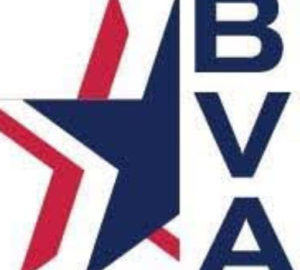The Association for Education and Rehabilitation of the Blind and Visually Impaired (AER), an organization with which BVA has partnered and worked for decades in common advocacy efforts, is currently seeking support from the blind and visually impaired community in its effort to reverse the non-continuation of Braille Training Grants from the Department of Education.
BVA Legislative Director Lea Rowe has requested that BVA Happenings publish the following “Urgent AER Advocacy Alert” from Lee Sonnenberg, AER Executive Director.
We need your help. On September 5, the U.S. Department of Education issued non-continuation notices to all three national Braille Training Grants under the 235E Demonstration Program: Braille Training. This means that for the first time in decades, there will be no federal support for developing specialized training resources in the United States.
The three programs that have been eliminated are:
- California State University, Los Angeles – focused on braille and technology training
- University of Massachusetts at Boston – focused on professional development across the lifespan
- University of South Carolina Upstate – focused on preparing new teachers and service providers
This decision impacts the entire field:
- No new training resources for Teachers of Students with Visual Impairments (TVIs) to provide braille literacy for their students.
- No additional training for Vision Rehabilitation Therapists (VRTs) to serve adults.
- No professional development or technology innovation to address the braille literacy crisis across the lifespan.
Why This Requires Your Voice
Each of the three universities is pursuing its own appeal through institutional channels. At the same time, AER is opening a fourth front, mobilizing our membership to apply direct political pressure. Unlike the DeafBlind campaign, this effort is more nuanced and requires personal outreach. The Department’s decision to terminate an entire braille program category cannot go unchallenged.
It is also important to note that all the programs that received non-continuation notices this cycle were related to sensory impairments. This is a targeted and disproportionate impact on children and adults who are blind, DeafBlind, or low vision.
Action Steps
- Call your U.S. Senators’ offices, especially if you live in West Virginia, Florida, North Carolina, South Carolina, Ohio, Pennsylvania, or Texas.
- Ask to speak with a senior staffer in the state or district office.
- Stress that this is not a budget issue. It is a policy choice that wipes out all federal braille training programs nationwide.
- Frame your message with these points:
- Braille is literacy. Without it, students and adults lose access to education, employment, and independence.
- Eliminating these grants means there will be no national support for specialized braille training for TVIs or VRTs.
- This decision harms one of the most underserved disability groups, those with sensory impairments.
- Some projects had a strong 6-year track record of success and impact.
- The effect is national, not local, and every state benefits from the professionals trained in these programs.
- Share this request with your networks. AER is working alongside our sister organizations to elevate this issue.
Why Calls Matter
Emails are too easily ignored. Calls to state offices of U.S. Senators carry weight, especially when they come from constituents. We must ensure that Senators, particularly Republicans in the targeted states, intervene directly with the Department of Education.
AER stands with the California State University, Los Angeles, the University of Massachusetts Boston, and the University of South Carolina Upstate. Eliminating these grants is unacceptable. Together, we must make clear that braille literacy is a national priority.
With urgency and appreciation,
Lee Sonnenberg, Executive Director
Association for Education and Rehabilitation of the Blind and Visually Impaired


